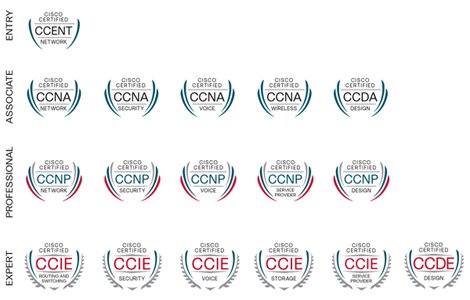Cisco certification plans have undergone major updates as detailed in the newly released certification guidelines aimed at addressing ‘the evolution of technology’. The technology company said it has redesigned its training and certification programs to prepare students, network engineers, and software developers for today’s most critical jobs.
To ensure that Cisco certificate holders have the skills necessary to succeed, the company is proposing some major changes to its certification program. Personally, I thought these changes were long overdue, given that we are now in the era of software-defined networks (SDN)

A New Certification Track
First on the list of these changes is the introduction of a new certification track called DevNet training and certification program at the associate, specialist and professional levels. This certification will validate the skills necessary to implement and manage programmable networks, which is where networking is headed after all.
No prerequisite for CCNP
Another major change proposed by Cisco which I welcome with wide arms is the removal of prerequisites for the CCNA and CCNP certifications. Presently, students are required to sit for and pass the CCNA routing and switching exam before going for any of the specialist CCNA or CCNP exams. The only CCNA exam you can write without first having the CCNA routing and switching certification is the CCNA Cyber Ops.
The proposed changes will now allow you to write any Cisco exam at the associate and professional level without first writing the CCNA R and S. Will this impact negatively on the value of CCNA routing and switching or all CCNA certifications in general? We will wait and see. However, given the high cost of certification/re-certification, I think it is a welcome development.
Consolidated and updated CCNA certification
Having removed the prerequisite on specialist CCNA certifications as well as CCNP, it is only right to update the entire CCNA curriculum to include all network fundamentals covered in CCNA routing and switching. So, expect more routing and switching topics like network fundamentals, subnetting, TCP/IP, routing to be added to CCNA security, wireless, Date center, Service Provider, etc.
CCIE now has an expiry date
New lifetime of 20 years for CCIE holders. CCIE holders will now be required to recertify after 20 years of certification.
Continuing education
Continuing education option for all. Valid old certifications still count and will be upgraded to new ones through the remaining periods of their validity.
The proposed changes will take effect from the 24th of February, 2020. The continuing education option allows you to sit for any of the current certification plans such as the #200-125 CCNA routing and switching exam before midnight on the 23rd of February, 2020 and have your certification remain valid even after the retirement of the exam.
What do you think about these changes? Do you think it will encourage more people to take the CCNP exam instead of CCNA or it will encourage more to think towards certifications in security, wireless or voice, thereby reducing the popularity of the routing and switching certification? Let me know what you think in the comment section. Visit the Cisco official certification page by clicking on the link below for more details.
https://www.cisco.com/c/en/us/training-events/training-certifications.html
If you found this post interesting, please subscribe to this blog to receive my posts via email. Also subscibe to my YouTube channel, like my Facebook page and follow me on Twitter.

Thank you for sharing. It is really helpful. But can you update the content? Thanks.